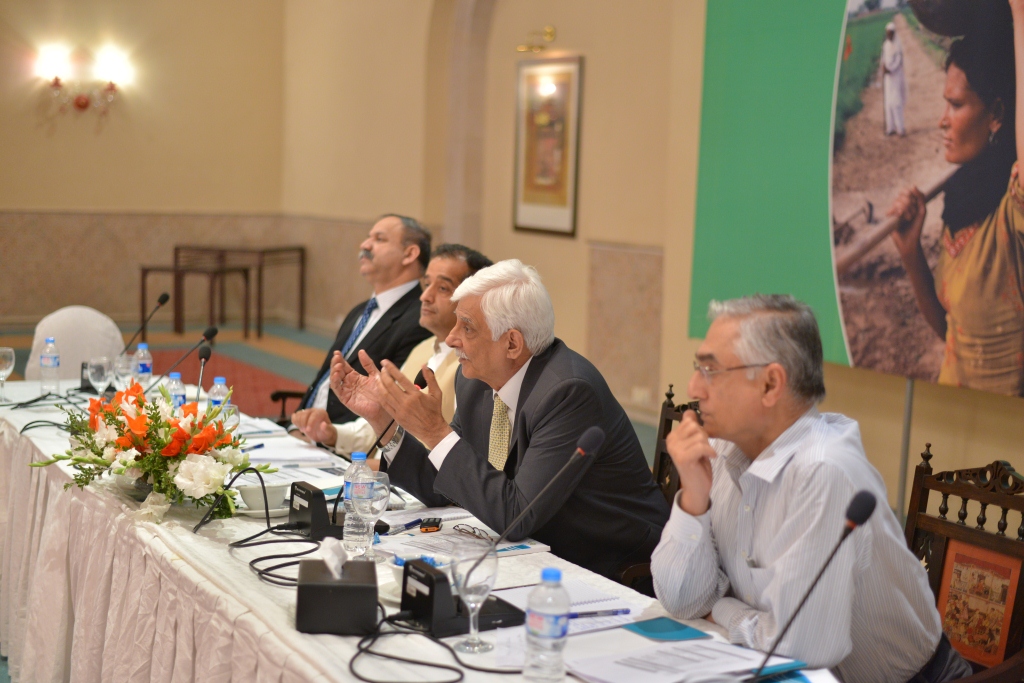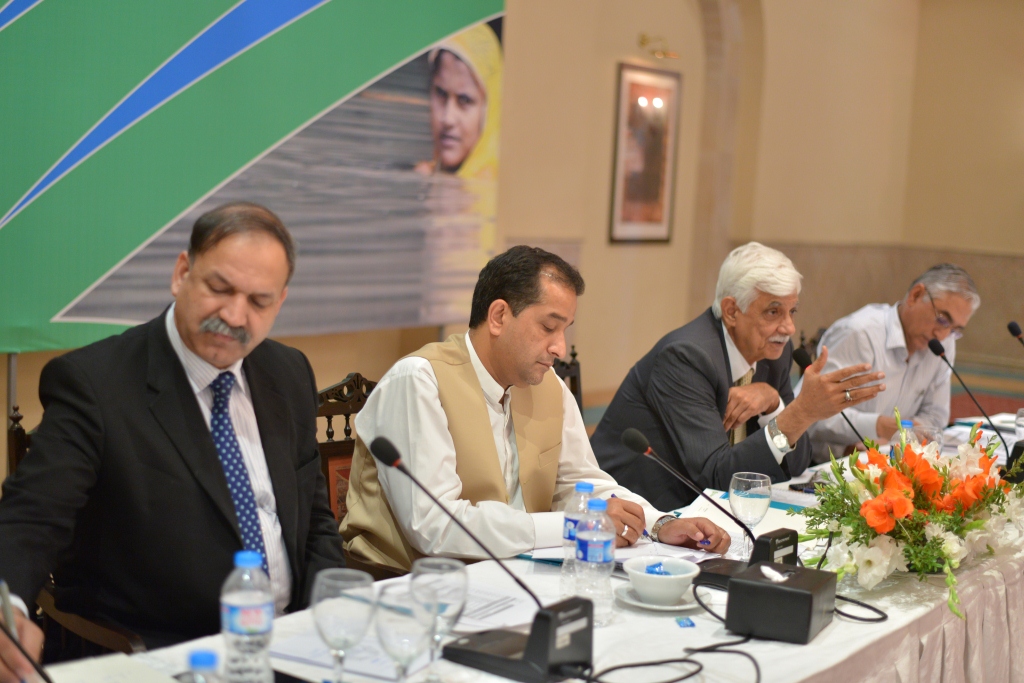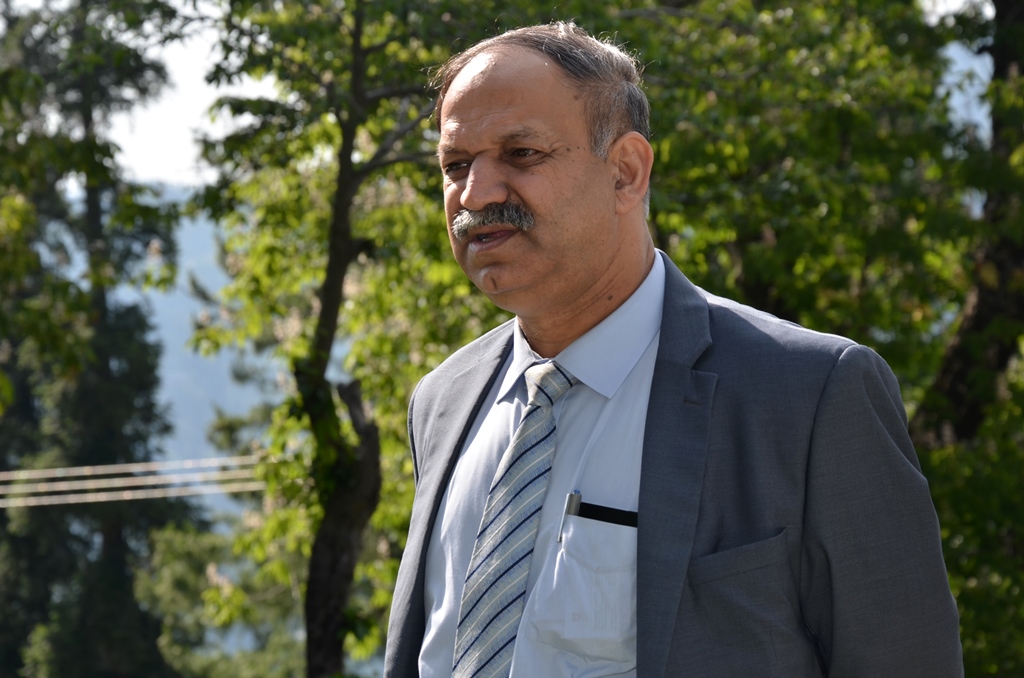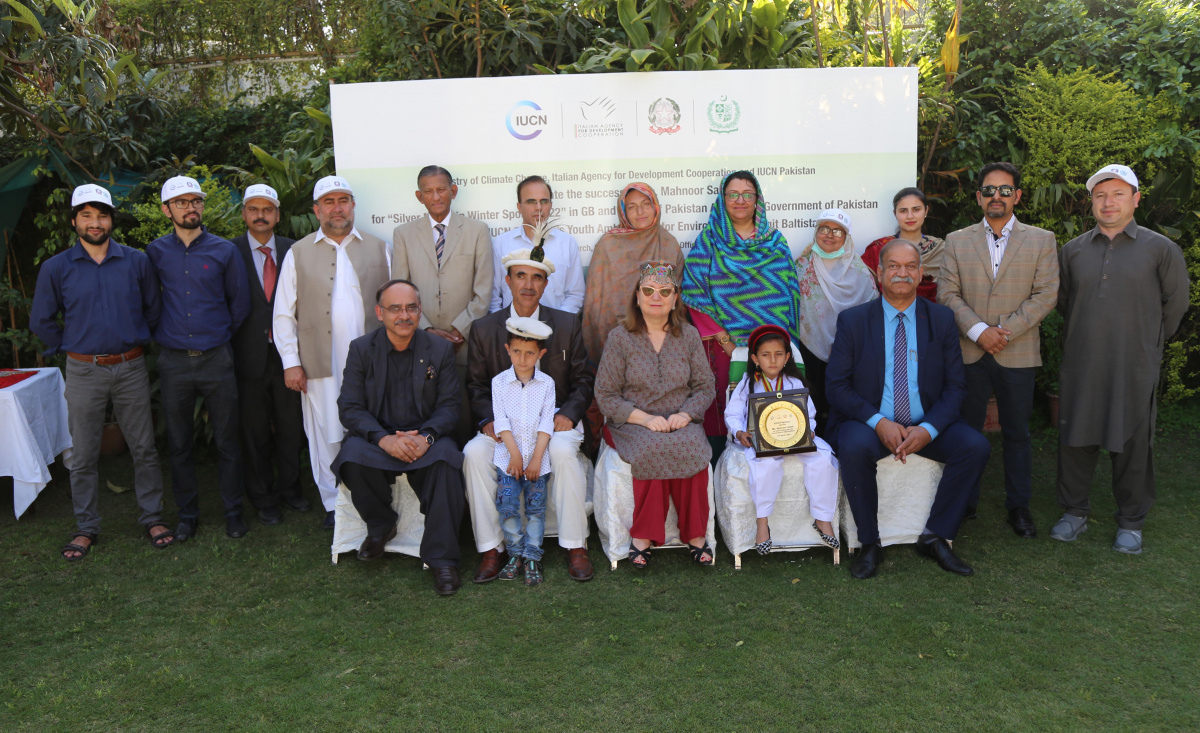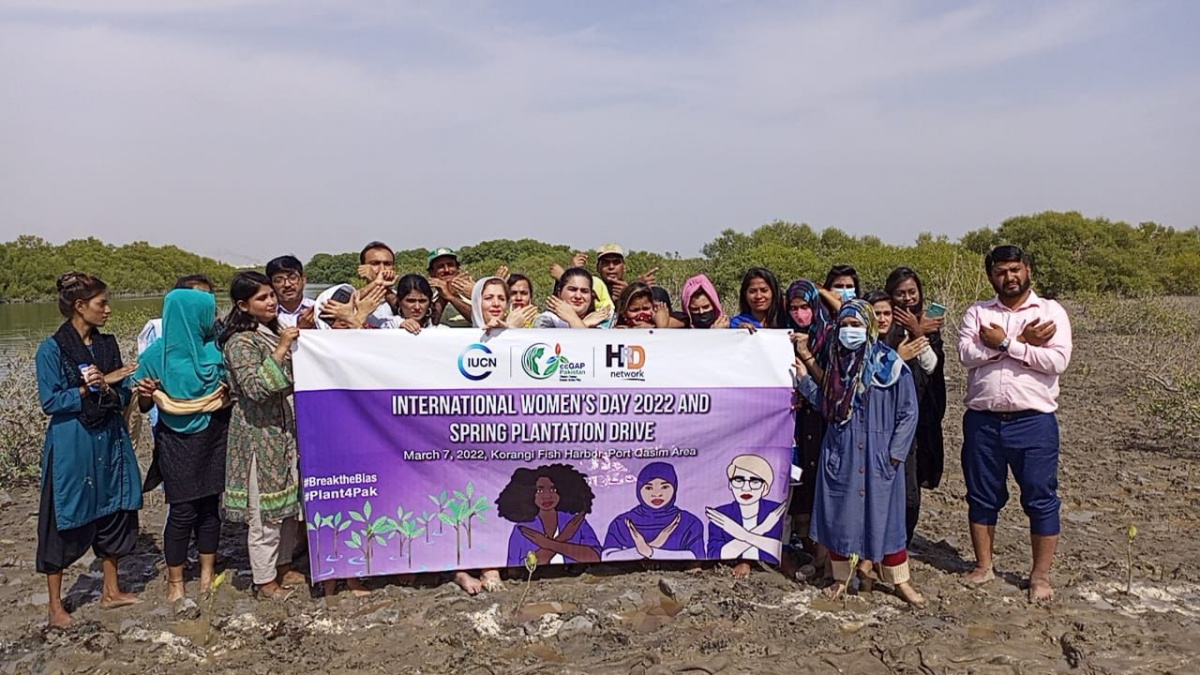Press release | 04 Jun, 2014
IUCN 2nd National Consultative Workshop on Pakistan Water Issues - Urgent Attention to Water Issues Needed to Pre-empt Impending Water Crisis in Pakistan
Experts at a second National Consultative Workshop on Pakistan’s water issues called for urgent decisions and action to prevent the country from drifting into a major and imminent water crisis in the near future, likening it to the energy crisis that Pakistan currently faces.
The workshop was organized by IUCN Pakistan in collaboration with Oxfam-Novib, and invited water experts, academicians, and other stakeholders to discuss the achievements of the Pakistan Water Programme (PWP) since the first similar workshop was held in April 2013. PWP is being implemented to address priority areas related to trans-boundary water, inter-provincial water cooperation, water security and health, and water productivity and ecosystem health.
The major thrust of the discussions was therefore on Pakistan’s current water crisis, especially the dwindling water resources, and the trans-boundary issues between Pakistan and India, and water cooperation between Pakistan and Afghanistan. In line with this, briefs were also presented on policy and institutional gap analysis of the water sector of Pakistan, with a view to eliciting feedback from participants. The Briefings of the Pilot Projects implemented in the real-life situation were also presented on wastewater management and reuse, enhancing water productivity in stressed environments of Sindh and Punjab and watershed management in mountainous environments. “These were based on pragmatic pilots that have been initiated by IUCN in different locations in Sindh and Punjab,” said Dr. Shahid Ahmad, Senior Water Expert, PWP, IUCN.
“The pilots designed for the wastewater management and composting of organic wastes are based on the use of Effective Microorganisms (EM) with a view to treating the wastewater, as well as building capacity among local communities so that the practice becomes common.
Dr. Shahid Ahmad particularly mentioned: “Sewage was being dumped into a freshwater stream trickling down from the Margalla Hills in Islamabad, and made unfit even for agricultural purposes. The issue is basically with the sewerage system of Islamabad, which is the responsibility of CDA, where due to the complexity of the problem associated with the opening of sewage outlets, the sewage is being dumped into the freshwater streams. The issue is created by the sanitation staff of the CDA and they have to rectify the problem to provide a healthy environment for the citizens of Islamabad.”
Dr. Ahmad also mentioned that IUCN had developed a Pakistan Water Forum that facilitates online meetings and discussions amongst experts and stakeholders, as a cost-effective mode for obtaining feedback and debating on key issues pertaining to water.
Dr. Amir Muhammad, Rector, National University for Computer and Emerging Sciences, was the chief guest who highlighted the urgency of the situation, especially with respect to the need for water storage capacities for future needs. With regard to the Kalabagh dam, Dr Muhammad suggested that provinces sit together and put together their concerns and come to an agreement on how this initiative could be taken further.
IUCN Pakistan Country Representative Mr. Mahmood Akhtar Cheema said that through the Water Programme, IUCN has called for increased cooperation amongst partners, stakeholders and experts in addressing national water issues. He mentioned that roundtable discussions on hydro-diplomacy between India and Pakistan, and between Afghanistan and Pakistan had earlier been organized and different ministries and departments such Ministries of Water & Power, Defence, Foreign Affiars, National Food Security and Agricultural Research, and other organizations (IRSA, PARC, WAPDA, NESPAK, PCIW and Federal Flood Commission), NGOs Universities, and private sector have all been taken on board to discuss the efforts needed for improving water cooperation amongst the neighboring countries.
Senator Taj Haider indicated that water is going to be the most important issue in the near future and Pakistan had to make concerted efforts not only to use the water of the Indus basin irrigation system efficiently but also to provide water for the people living outside the Indus basin – Thar desert, Kohistan area, riverine areas, etc. He emphasized the need for initiating effective programmes for addressing issues related to water and energy for the provinces, especially for Sindh. He has shown that the work done by IUCN needs to be expanded to other areas in the provinces especially the stressed environments.
Mr. Malik Amin Aslam, Chair Pakistan National Committee of IUCN Members, in his concluding remarks, expressed satisfaction that the PWP has addressed issues at the trans-boundary, policy, institutional and field levels, which normally is difficult to address in any one project. He said water is going to be a real issue constraining the development of the country and its availability and sustainability for generations to come in future is the need of the time. He also emphasized that there is an urgent need to make water as a movement and a business for everyone. This means involvement of youth is essential especially the graduate students working in different sectors such as water and environment.
For more information, please contact:
George Sadiq
Programme Officer
Education Communication and Outreach
Cell: 0301-2931184
E-mail: george.sadiq@iucn.org
LINKS:
